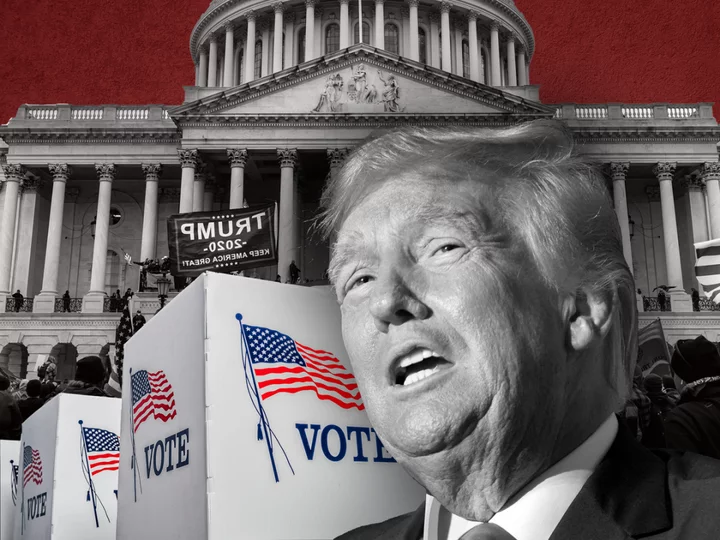
Trump, January 6 and a conspiracy to overturn the 2020 election: The federal investigation, explained
Indictments are imminently expected following a federal investigation into efforts from Donald Trump and his allies to subvert the outcome of the 2020 presidential election. The former president announced he received a target letter – a document formally indicating he is the subject of an investigation – in connection with a sprawling US Department of Justice special counsel probe into an alleged scheme to preserve Mr Trump’s presidency against the wills of millions of voters. A case will not likely be revealed in full until an indictment is unsealed in US District Court, but a wealth of evidence uncovered by members of Congress and in other documents suggests that the former president and potential co-defendants could be prosecuted in what would be a second round of federal charges against him. A House select committee spent a year and a half investigating the events surrounding and leading up to the attack on the US Capitol on 6 January, 2021, including a series of blockbuster public hearings laying out evidence and witness testimony describing the depth of Mr Trump’s attempts to remain in office at whatever cost. The panel’s final 845-page report provides a detailed account of Mr Trump’s refusal to cede power – regardless of the outcome of a democratic election – while privately acknowledging that he lost, as his baseless “stolen election” narrative fuelled his supporters to riot in the halls of Congress, an argument that also bolstered his second impeachment in the House of Representatives. In December, lawmakers on the House committee unanimously voted to recommend charges against the former president, claiming that there is enough evidence to prosecute him for at least four crimes – including aiding or providing comfort to an insurrection aimed at toppling the United States government. The panel also referred Mr Trump to the Justice Department for the obstruction of an official proceeding, conspiracy to defraud the US, and conspiracy to make a false statement to the federal government. John Eastman, the attorney who argued that Mr Pence could reject election results, and Kenneth Chesebro, who helped develop the fake elector scheme, were also implicated in the committee’s report, along with former White House chief of staff Mark Meadows, attorney Rudy Giuliani, and former assistant US Attorney General Jeffrey Clark. It was a mostly symbolic vote, marking the culmination of the committee’s months-long investigation, but it sent a powerful signal from a bipartisan group of lawmakers bolstered by mountains of evidence that a former president should be held accountable for his alleged crimes against the government. That report and countless investigations into the events surrounding January 6 have painted the attack on the Capitol as part of a much-larger effort to preserve a fragile American democracy in a volatile battle to determine the truth and who wields it. Who is under investigation? The Justice Department, meanwhile, had separately been investigating Mr Trump’s rejection of 2020 results, building on the years of work from federal prosecutors to investigate more than 1,000 people in connection with the January 6 attack on the US Capitol, fuelled by the former president’s ongoing false claims that the election was rigged against him. Prosecutors have talked to a number of chief aides and officials in Mr Trump’s circle, including Mr Pence, White House chief of staff Mark Meadows, former attorney Rudy Giuliani, former White House counsel Pat Cipollone, his former deputy Pat Philbin, and former National Security Adviser Robert O’Brien, among several others. They also have spoken with Georgia Secretary of State Brad Raffensperger, who was on the other end of a call with Mr Trump demanding that the state’s top elections official “find 11,780 votes” – enough for him to overturn Mr Biden’s victory in the state. That call, which was taped, also is at the centre of a separate investigation from Fulton County District Attorney Fani Willis into election interference in the state. Arizona – ground zero for an election denialism movement that gave rise to leading GOP candidates for the top three statewide offices, including failed candidate for governor Kari Lake – was a focal point for the Trump campaign and his allies, who filed several lawsuits against the state and some counties in an attempt to overturn the lawful results. Mr Biden won the state by roughly 10,000 votes. Federal prosecutors have talked to former Arizona Governor Doug Ducey, who silenced a call from Mr Trump while Mr Ducey was in the middle of certifying his state’s election results – a process that was being live-streamed and carried across news outlets. Mr Smith’s office also subpoenaed the office of Arizona Secretary of State and has met with top elections officials in Wisconsin, New Mexico and Pennsylvania. Prosecutors also have interviewed Michigan Secretary of State Jocelyn Benson, whose office provided a tranche of documents that included communications between the state’s election officials and Mr Trump’s former lawyers and members of his campaign as the former president’s allies targeted the critical battleground state. Central to the investigation is whether Mr Trump knew that he lost but pressed ahead with spurious efforts to overturn results anyway, with federal prosecutors reportedly speaking to his son-in-law and former adviser Jared Kushner and former communications directors Hope Hicks and Alyssa Farah Griffin with those questions in mind. What charges could prosecutors bring against Trump? Based on evidence uncovered by the select committee and other filings and reporting, prosecutors are likely investigating several key elements of the sprawling effort to reverse the 2020 election: Mr Trump’s lies about the outcome, his campaign’s attempts to pressure state officials and push false slates of electors to obstruct the certification of the results, a failed attempt to persuade Mr Pence to refuse the outcome, and Mr Trump’s failure to stop a mob of his supporters from breaking into the Capitol. Mr Trump knew he had lost the election but continued to pursue efforts to remain in power, including the so-called alternate elector scheme to fraudulently certify the results submitted to Congress, prosecutors are likely to argue. On 18 July, Michigan attorney general Dana Nessel charged 16 “fake” electors in that state, marking the first criminal charges brought against so-called “alternate” electors who sought to overturn 2020 results. Charges against Mr Trump and others connected to those allegations and similar attempts in other states could include conspiracy to defraud the United States in the administration of elections, the obstruction of an official proceeding, and wire and mail fraud. Obstruction The target letter from federal prosecutors to Mr Trump cites three statutes that the former president likely violated in his attempts to reverse the outcome of the 2020 election. One charge – obstruction of an official proceeding – has already been brought against hundreds of people in connection with the Capitol attack. The House select committee and a federal judge who was involved in cases stemming from its inquiry argued that there is evidence that Mr Trump sought to corruptly obstruct the certification of electoral college votes in Congress – a crime punishable up to 20 years in prison, if convicted. Conspiracy That same federal judge and the House select committee also have argued that there is evidence to convict Mr Trump on a charge of conspiracy to defraud the government, which is punishable by up to five years in prison. Mr Trump’s efforts through his legal team and his inner circle to block the certification of Mr Biden’svictory in states that he lost, while falsely claiming widespread voter fraud and manipulation had stolen the election from him, would likely form the basis for that charge. The former president also is charged under this statute in the Mar-a-Lago documents case, where he is accused of using a lawyer to lie to the Justice Department. “The illegality of the plan was obvious,” California Judge David O Carer wrote in a ruling from a civil lawsuit involving John Eastman, who was central to the so-called “alternate” electors scheme. Mr Trump, ignoring the nation’s history of the peaceful transition of power, “vigorously campaigned for the vice president to single-handedly determine the results of the 2020 election,” the judge wrote. Fraud The special counsel investigation suggests that prosecutors are scrutinizing Mr Trump’s vast fundraising arm and the tens of millions of dollars it raised after pleas to supporters for donations to combat election fraud, despite no evidence to defend those claims. In May 2020, with the presidential election still months away, Mr Trump said it would be “rigged” against him if he were to lose. That June, he said the election would be the “scandal of our times”, called it “inaccurate and fraudulent” and the “greatest election disaster in history”. Not a single ballot had yet been cast. His own Justice Department and campaign found no evidence of widespread voter fraud, and dozens of lawsuits filed by his campaign and allies to overturn results were withdrawn or dismissed, while his attorneys and the right-wing network amplifying their false claims face massive defamation lawsuits from the voting machines companies and election workers at the center of them. Lawmakers on the House select committee argued that Mr Trump’s campaign “misled donors as to where their funds would go and what they would be used for,” US Rep Zoe Lofgren said during hearings. “So not only was there the ‘Big Lie,’” she said. “There was the ‘Big Rip-off.’” Is there a case for insurrection? After Mr Pence refused Mr Trump’s argument for his vice president to toss out the results, then-President Trump “went to his last resort: triggering an insurrection in the hope that it would throw Congress off course, delaying the transfer of power for the first time in American history,” according to legal experts at Just Security, outlining a model prosecution memorandum similar to what federal prosecutors would also likely be reviewing. And after delivering remarks to a rally of his supporters while a joint session of Congress convened to certify 2020 election results, a speech that allegedly incited his supporters to storm the Capitol, then-President Trump stood by for 187 minutes before he told them to go home. The House select committee unanimously agreed that Mr Trump should be charged for inciting an insurrection and giving aid or comfort to insurrectionists – a rare and severe charge that prosecutors will approach only with extreme caution, if they decide to prosecute at all. “We believe there is sufficient evidence to pursue it – as did the Select Committee in making a criminal referral of Trump under that statute – but prosecutors may make different choices,” experts at Just Security noted. A conviction on that charge mandates a sentence of up to 10 years in prison and would prohibit Mr Trump from holding office. None of the more than 1,000 people arrested in connection with the attack are facing this charge. What has Trump said about the probe? The former president has repeatedly characterised the multiple investigations against him, including the January 6 probe, as a politically motivated “hoax” and an attempt to “steal” the 2024 election from him. On 23 July, Mr Trump published several posts on his social network Truth Social, once again calling the special prosecutor “deranged”. He claimed that investigations into him were a “coordinated HOAX,” pointing to the probe into allegations of collusion between the Trump 2016 campaign and Russia. Mr Trump also went after President Joe Biden, claiming without providing evidence that he’s a “criminal” before going on to call him “the most corrupt and incompetent President in United States history”. “Get smart, Republicans, they are trying to steal the Election from you!” he wrote before referring to Democrats and federal and state prosecutors as “monsters” who are “destroying our country”. This story was initially published on 19 July and has been updated with developments Read More Trump news – live: Trump claims he’s ‘not frightened’ by Jan 6 target letter as potential indictment looms
2023-07-25 02:58

Greg Abbott defies White House warning on floating Texas border wall: ‘See you in court, Mr President’
Texas governor Greg Abbott says he will continue deploying floating border barriers in the Rio Grande River, despite a warning from the Justice Department last week it might sue the state for overstepping its jurisdiction. “Texas will see you in court, Mr President,” the Republican governor wrote in a letter Monday to President Biden, claiming the Democrat’s border policies left him “no other choice” but for Texas to build military-style defences along the US-Mexico border. “All of this is happening because you have violated your constitutional obligation to defend the States against invasion through faithful execution of federal laws,” Mr Abbott added. This is a breaking news story and will be updated with new information.
2023-07-25 02:51

How to watch as New Zealand and Switzerland look to progress at the 2023 Women's World Cup
Women's World Cup co-host New Zealand can potentially secure a place in the tournament's knockout stages with a win against the Philippines in Group A on Tuesday.
2023-07-25 02:29
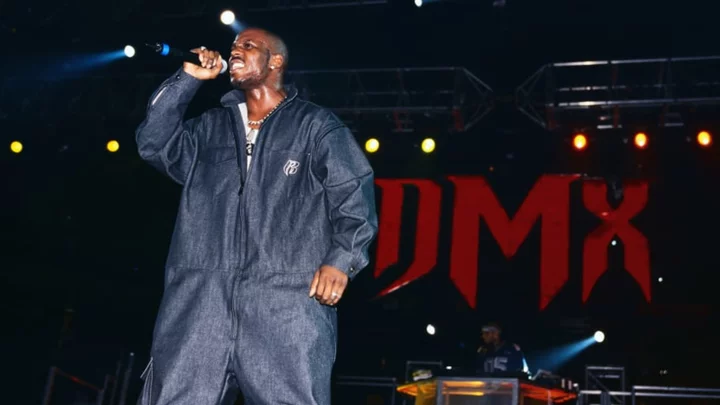
X X's More X Than Twitter
Twitter's name change is a XXXXing embarrassment.
2023-07-25 02:23
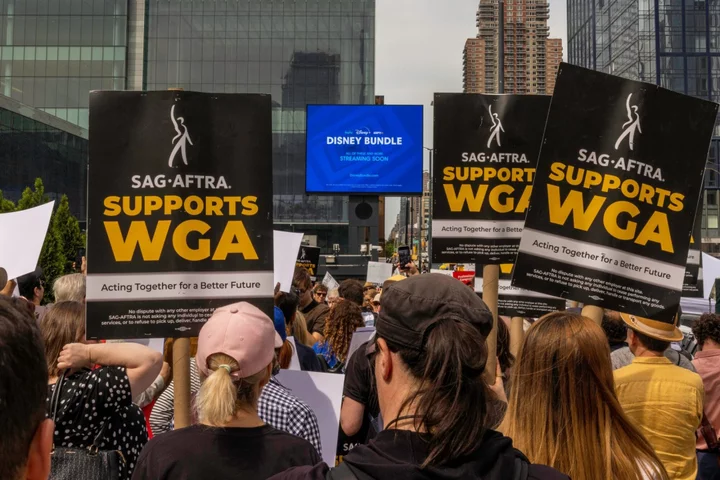
Disney Considers Delaying Some 2023 Movie Releases Over Strikes
Walt Disney Co. is reviewing its schedule of film releases through the rest of the year and may
2023-07-25 02:00
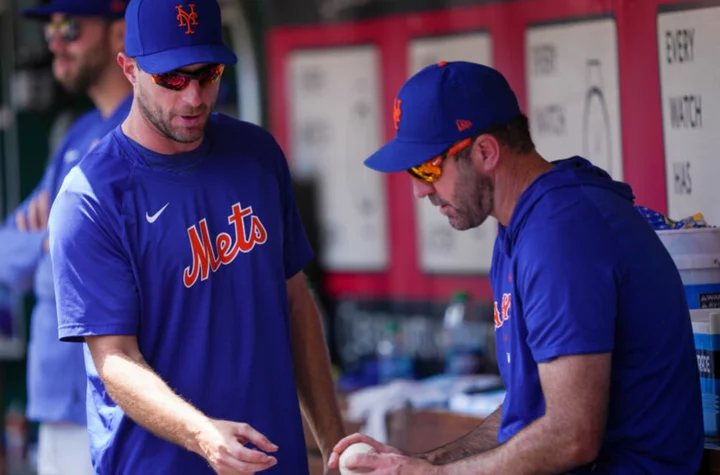
NY Mets: 4 monstrous trade packages for Justin Verlander and Max Scherzer
As the New York Mets come to terms with a selling mentality, Justin Verlander and Max Scherzer are on the trade block.It's been a disappointing season for the New York Mets, but the team is in a decent position to retool for the 2024 campaign, should they make the right decisions.Tradin...
2023-07-25 01:55
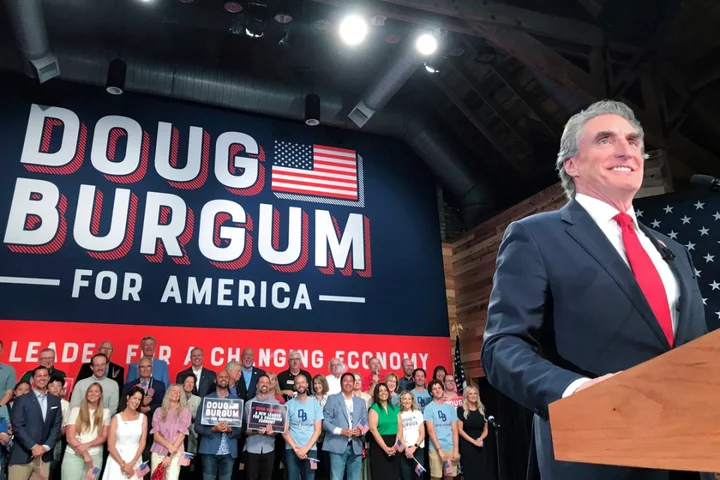
Biden supporters exploit Republican’s $1 donation cashback campaign pledge: ‘I gave $1 to you and $20 to Biden’
Republican presidential candidate and North Dakota Gov Doug Burgum is offering $20 gift cards to donors who give $1 to his campaign — but some supporters of Joe Biden say they have been funneling the gift card money to the president’s re-election campaign. Mr Burgum’s campaign site says: “Donate $1 and receive a $20 gift card!” The Republican candidate also took a direct hit at Mr Biden, “The burden on American families caused by the Democrats is unruly, and Joe Biden is doing nothing to fix it. We want to help, so we’re offering YOU a $20 gift card, and all YOU have to do is contribute $1 to claim it.” The gift cards are ironically called “Biden inflation relief gift cards.” However, some donors say they are taking advantage of the extra cash and sending it to the incumbent. One Twitter user wrote, “I gave @DougBurgum $1 so he would send me $20. Then I gave the $20 to @JoeBiden.” He attached photos of his donations. Another user tweeted that he “donated $1 to Doug Burgum and turned around and donated $20 to Joe Biden.” Yet another said, “Ok I gave him $1 and when my $20 gift card arrives I will give Biden-Harris a $19 contribution in honor of Doug Burgum.” “We passed the 40,000 mark today. We’ve got more gift cards to give out. We’re going to keep on going,” the North Dakota governor said, indicating he reached the unique donor threshold to qualify for the GOP presidential primary in August. Still, Fivethirtyeight shows Gov Burgum polling average at a mere 0.1 per cent. Former President Donald Trump is handily leading the Republican polls, with 51 per cent. Florida Gov Ron DeSantis is trailing him with only 18.9 per cent. Read More Joe Biden is breaking his promise to end the federal death penalty The presidential candidates who have so far met criteria to join first RNC debate Who is running for president in 2024?
2023-07-25 01:50

Israeli Shekel Goes to Worst From Best on Judicial Overhaul Bill
Israel’s shekel swung to the world’s biggest loss from the biggest gain on Monday as investors weighed whether
2023-07-24 23:49
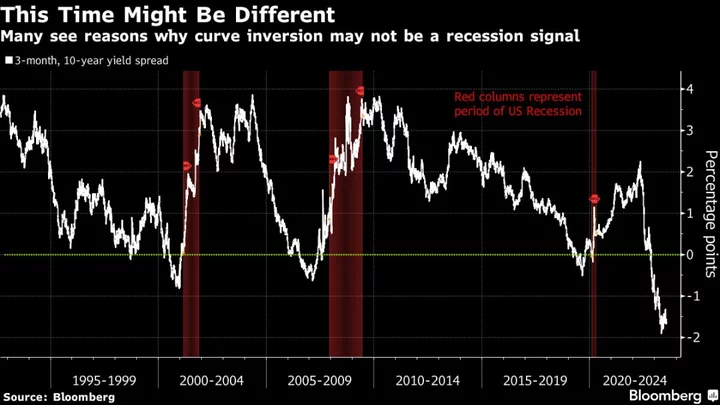
Bond Traders Bet on ‘Nirvana’ in New Decoding of Yield Curve
Listen to Wall Street’s top economists and you’ll hear the same message again and again: The risk of
2023-07-24 23:27

Soccer-Borges bags hat-trick as Brazil breeze past Panama in opener
ADELAIDE (Reuters) -Ary Borges scored a hat-trick on her Women's World Cup debut to help Brazil thrash debutants Panama 4-0
2023-07-24 22:26
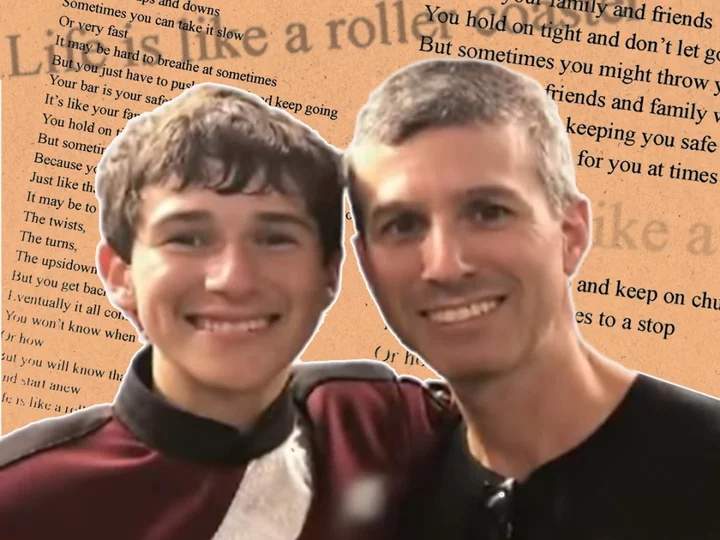
A Parkland father returned to the scene where his son died. He left with a bullet-torn poem and even more pain
As he prepared to write a eulogy for his 14-year-old son Alex’s funeral, Max Schachter found strength in a crumpled-up piece of paper the teen had discarded in the trash. “Life is like a roller coaster/ It has some ups and downs/ Sometimes you can take it slow or very fast/ It may be hard to breathe at times/ But you have to push yourself and keep going,” Alex wrote in his poem Life is Like a Rollercoaster. The powerful words became a precious keepsake of Alex’s wisdom beyond his years after he was fatally shot during class at Marjorie Stoneman Douglas High School in Parkland, Florida, on 14 February 2018. For years, the poem was a recurrent source of solace for the Schachter family; it was read by Mr Schachter as he addressed members of government early on in the tragedy, it helped the Schachters navigate never-ending waves of grief as time passed and it was also read last year by Alex’s older brother Ryan during his victim impact statement as a jury prepared to sentence Alex’s killer. Five years after the shooting that claimed 17 lives, staff hired by the school district found the final draft that Alex had turned in to his English teacher. They also found the lunchbox his parents packed for him every day and the binder with his schoolwork, but his backpack was placed inside a box labelled “biohazard” that Mr Schachter hasn’t opened yet. “[They] said, ‘I want to just tell you something ... there was a bullet that went through the poem, and I was just trying to process that this is just really painful,” Mr Schachter recounted to The Independent. “They had his belongings ... and then they gave it to me in a box with tape all around it and I asked, ‘What’s with all of this?’ They said it was because either it had a bullet shot through or there was blood on it. I took it home with every intention of opening it, but it’s hard.” “Looking at this journey that I’m on along with the other sixteen families – it’s just brutal. It never ends.” In the aftermath of the school shooting, the hard decisions have continued to pour in. Families of the Parkland shooting victims have been given the option to tour the preserved crime scene where Nicholas Cruz, a former student at the school, ambushed classrooms and indiscriminately shot at more than 34 people. The building was preserved as evidence for Cruz’s penalty trial last year. After the prosecution rested its case in August 2022, jurors retraced the path of violence. The state hoped that seeing the crime scene in person would convince them that Cruz deserved the death penalty, but jurors couldn’t unanimously agree. Cruz was ultimately sentenced to life in prison in November. “I wanted to walk through that building, [for it] to help me crystallise what had happened,” Mr Schachter said. “I wanted to understand what happened to Alex and I wanted to sit in that chair. I wanted to take that chair home with me, that was the chair that Alex took his last breath in.” Inside Alex’s classroom, Mr Schachter found what he described as a “war zone” – the harrowing evidence of the horrors that his son and his classmates endured. And with everything surrounding the carnage, the details continue to be as horrific all these years later as they were on that tragic day. “As I got there, I realised how he killed everyone and was so brutal and what he did to Alex,” Mr Schachter told The Independent. “There was blood all over Alex’s seat and all over the floor and his paperwork had blood on it.” There were also subtle hints of the sudden way in which hundreds of lives were changed that Valentine’s Day. The scattered textbooks, boards with lesson plans that were never taught, Valentine’s cards that were never delivered to their recipients and deflated balloons have become a painful reminder of the passage of time. Mr Schachter wasn’t trying to find closure when he walked inside the building where his son was murdered. But he was hoping to feel closer to Alex. However, the decision to open a box that may contain more fuel for nightmares is one he is not ready to make just yet. “I’m understanding that there might be more harm than good. There might be more negatives than positives from opening that box,” he said. “I haven’t made a decision on the box, but I am cognisant of the fact that it’s going to be very painful and I’m not sure if I’m ready for that.” Mr Schachter has turned his pain into purpose through his nonprofit Safe Schools for Alex, which assists parents, students and school districts with resources to make schools safer. It provides training in threat assessments and school safety best practices. The charity is currently fundraising money in honour of what would have been Alex’s 20th birthday on 9 July. Mr Schachter was also part of the Marjory Stoneman Douglas High School Public Safety Commission, which investigated failures before and after the shooting and then presented recommendations. “I travel around the country and I speak with law enforcement organisations, with school districts about what happened in Parkland,” Mr Schachter said. “I talk about the failures. I talk about what Florida’s done post-Parkland.” Under the Trump administration, a bill named after Alex and his friend Luke Hoyer, who also died in the Parkland shooting, led to the creation of SchoolSafety.gov, a federal website that compiles tools and actionable recommendations to create safer environments in K-12 schools, including resources for bullying as well as active shooting drills. The website was incorporated into President Biden’s Bipartisan Safer Communities Act last year. “The reason I do what I do is because there’s so much complacency. [No one] thinks it’s going to happen to them, so that’s why I go around the country and I tell Alex’s story and I show pictures and videos of him playing the trombone and the baritone because I never thought it would happen in Parkland,” Mr Schachter told The Independent. “I moved to Parkland because it was ranked the safest city in Florida right before the shooting, but it can happen everywhere.” The victims wounded in the Parkland shooting and their loved ones will also be able to visit the 1200 building at Marjory Stoneman Douglas High School, now that it is no longer needed as evidence in the trials of the convicted killer and a deputy who was acquitted last month of failing to stop him. The school district plans to demolish the three-story building, likely replacing it with a memorial. Read More Seven murders by cyanide-laced Tylenol will never be solved. But the prime suspect’s death brings justice The Zodiac Killer claimed responsibility for 37 murders. But what if he never existed at all?
2023-07-24 21:26

Brazil Scored an Unbelievably Gorgeous Goal in the World Cup
Bia Zaneratto finished off a spectacular sequence.
2023-07-24 21:25
